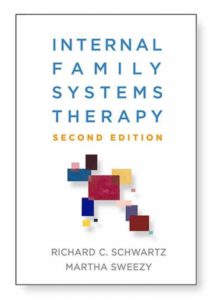In my psychotherapy (and chats, consultations, etc) with people in addiction, I combine skills I’ve picked up over 35 years studying clinical psychology, developmental psychology, psychoanalysis, and neuroscience. But it’s not enough. I need retooling.
I’ve developed some good intuitions about how to do psychotherapy…mostly by doing it, putting theory into practice. And I can be effective with people in addiction partly because I’ve been there myself. I know I’ve helped people transform their addictive habits. I’ve had clients who’ve quit, cut down substantially, or who continue to use or drink without a sense of desperation or compulsion. I’ve helped people discover or rediscover how to like themselves, forgive themselves, even love  themselves, sometimes despite vast challenges (including abuse of one kind or another) during childhood and/or adolescence. And I’ve helped people devise cognitive tricks to shunt their trajectory away from substance use and toward more satisfying habits.
themselves, sometimes despite vast challenges (including abuse of one kind or another) during childhood and/or adolescence. And I’ve helped people devise cognitive tricks to shunt their trajectory away from substance use and toward more satisfying habits.
But I’ve failed a lot too. I’ve had clients I haven’t been able to help, for whom my best instincts amount to little more than a shot in the dark. With drug addiction, every failure is potentially lethal. So I figure I need to retool.
So what’s the best way to do that?
Like so many other “experts” working with people in addiction, I’m still looking for the silver bullet. Or bullets — because I can name ten schools of psychology, psychotherapy and mindfulness training off the top of my head (and some pharmaceutical approaches as well) — most of which aim to help people recover from addiction (as well as other mental health goals). And most of them do help. Some people. Sometimes.
 But there seems to be a black hole in the centre of the addiction galaxy that sucks in techniques of every sort and laughingly squishes them to nothing, tosses them back down some wormhole to some parallel universe. And surely that’s because addiction boils down to a unique “thing” which is totally psychological, totally biological, and totally social. A habit in the workings of our cells, our minds, and our interpersonal relations.
But there seems to be a black hole in the centre of the addiction galaxy that sucks in techniques of every sort and laughingly squishes them to nothing, tosses them back down some wormhole to some parallel universe. And surely that’s because addiction boils down to a unique “thing” which is totally psychological, totally biological, and totally social. A habit in the workings of our cells, our minds, and our interpersonal relations.
(And by the way, when people ask whether addiction is psychological OR biological OR social, they’re asking the wrong question.)
But besides that, the very unique thing about addiction is that when you start to beat it, when you actually start to succeed in your recovery, then instead of a radiant glow of achievement and satisfaction (that may come  later) you’re often left with an aching emptiness. And what the hell are we humans supposed to do with that?! (Mindfulness/meditation has some answers, but let’s face it, the solution isn’t obvious.)
later) you’re often left with an aching emptiness. And what the hell are we humans supposed to do with that?! (Mindfulness/meditation has some answers, but let’s face it, the solution isn’t obvious.)
So, I want to spend the next few posts examining some of the therapeutic techniques that are potentially effective with addiction, and try to figure out what works best, what works for whom, and how we might nudge some of these techniques so they’ll work even better. I also want to address this issue of “emptiness” head-on. It’s a biggie.
I’ll start by sharing my own plans for retooling.
Acceptance & Commitment Therapy (ACT)
 ACT combines techniques from cognitive-behavioural therapy (CBT) with techniques from mindfulness/meditation. It’s oriented toward people’s basic deep-down needs — and the incredible things they do to avoid them, deny them, or satisfy them in ways that just don’t work. It’s also strategic, in that the therapist serves as a coach to try different approaches to recurring negative experiences. ACT is explicitly geared toward conscious change in how we interact with ourselves and with others.
ACT combines techniques from cognitive-behavioural therapy (CBT) with techniques from mindfulness/meditation. It’s oriented toward people’s basic deep-down needs — and the incredible things they do to avoid them, deny them, or satisfy them in ways that just don’t work. It’s also strategic, in that the therapist serves as a coach to try different approaches to recurring negative experiences. ACT is explicitly geared toward conscious change in how we interact with ourselves and with others.
I’ve used some ACT themes in my own work with clients. They help. But I want to get to the details. So I’ve recently enrolled in an online intensive training course. The course is taught by Steven Hayes, the founder, a guy who somehow resembles a martian, totally bald, with sea-shell ears that rise at an odd angle, but who radiates wisdom, compassion and skill. ACT is partly devised to help people with addictions. And other addiction workers (like Matt and Peter Sheath who’ve posted on this blog) see it as effective. So what’s the secret? I’ll tell you what I’m learning as I learn more.
Internal Family Systems (IFS)
 IFS is a school of psychotherapy that identifies and listens to the internal voices in our heads — most obvious in addiction through the (sometimes horrendous) conversations or shouting matches between the taking-care self, the addict self, and the internal critic (how they’re often recognized and identified). The founder, a guy named Richard Schwartz, studied family systems therapy back in the 70s and began to realize that all the shit that goes on between family members is actually going on in our own heads. Sometimes almost constantly.
IFS is a school of psychotherapy that identifies and listens to the internal voices in our heads — most obvious in addiction through the (sometimes horrendous) conversations or shouting matches between the taking-care self, the addict self, and the internal critic (how they’re often recognized and identified). The founder, a guy named Richard Schwartz, studied family systems therapy back in the 70s and began to realize that all the shit that goes on between family members is actually going on in our own heads. Sometimes almost constantly.
IFS is well-designed for dealing with addiction because addicts so frequently say “there’s a part of me that just says fuck it, I want to use” and ignores the arguments of other “parts” of the self. This division of one part of oneself from other parts just begs to be dealt with head-on. I sometimes focus on clients’ internal dialogue in my own therapy practice, though I’ve never studied IFS seriously. But now I’m reading up on IFS…to get ready. I’ll be attending a 5-day intensive workshop on IFS for people in addiction this March. I’ll let you know what I learn.
I hope visits to these and other psychotherapeutic approaches will be useful for readers who are devoted to helping people in addiction. But I also think they’ll be important for those who are struggling with their own addiction — because they can highlight what’s available from different forms of therapy and introduce powerful techniques you can use on your own.

Leave a Reply